
DevOps

Bootcamp





Student Enrolled
Rating
Live Projects
Successful Graduates
Become a Certified DevOps Practitioner
- Transform your journey from zero knowledge of DevOps and Cloud to becoming a skilled and confident DevOps Engineer.
- Gain industry-recognized certifications that validate your hands-on expertise.
- Build an impressive portfolio of real-world DevOps and Cloud projects to demonstrate your mastery and stand out in the field.
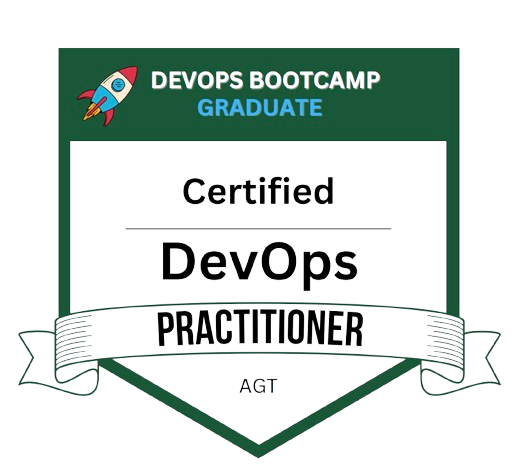
What you'll learn
- Develop a DevOps mindset, practice Agile philosophy & Scrum methodology - essential to succeed in the era of Cloud Native Software Engineering
- Create applications using Python language, using various programming constructs and logic, including functions, REST APIs, and libraries
- Build applications composed of microservices and deploy using containers (e.g. Docker, Kubernetes, and OpenShift) & serverless technologies
- Employ tools for automation, continuous integration (CI) and continuous deployment (CD)
wall of love
What our student about us
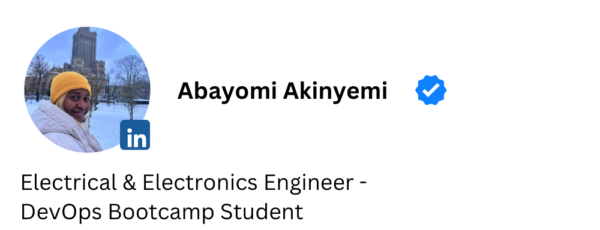
“After completing the course, I was confident to attend interviews. I just created a master DevOps resume and applied to companies. I got 2 offers in less than 24hrs of attending 2 interviews back-to-back.”
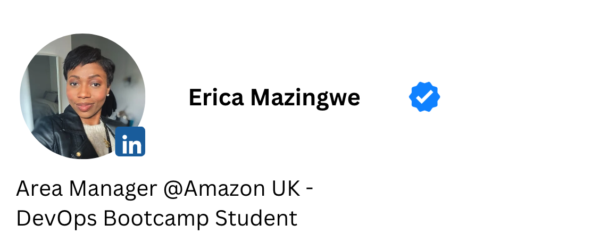
“The curriculum is organized in such a way that after you complete the training you have a very clear picture about where each piece of the DevOps puzzle fits.”
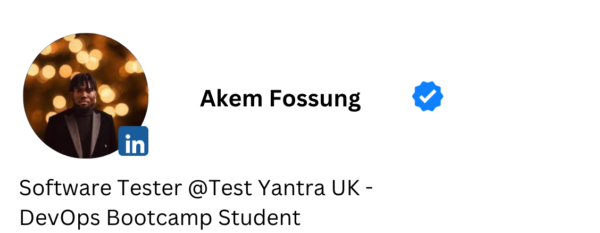
“I waited 2 weeks and the interviews starting rolling in. I received 10+ interviews and had 4 offers. I am now working as a DevOps Engineer at a FinTech company in London with amazing co-workers.”
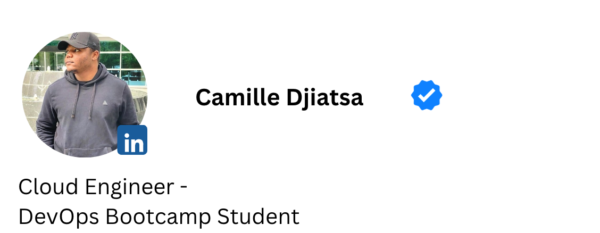
“I know there’s no shortcut in success but this bootcamp does guide us to the most efficient and effective path to become a DevOps engineer”
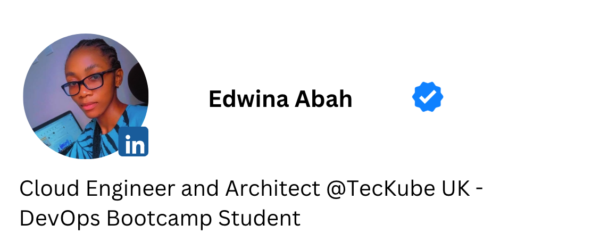
“I really enjoyed the DevOps bootcamp. The best thing is that nearly everything integrated with my daily job. For example, the Kubernetes part gave me a lot of confidence in my daily job.”
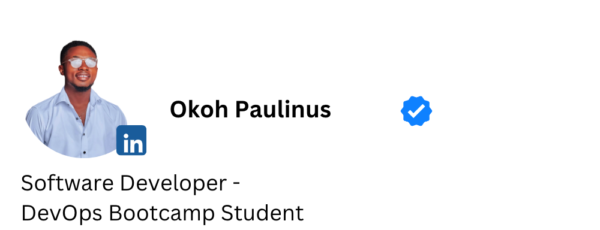
“I would like to thank Prosper and the team, your DevOps bootcamp allowed me to get a job as a DevOps engineer in Paris while I was living in Ivory Coast, so I traveled to take the job.”
DevOps Learning Path
Go from Zero to DevOps Professional
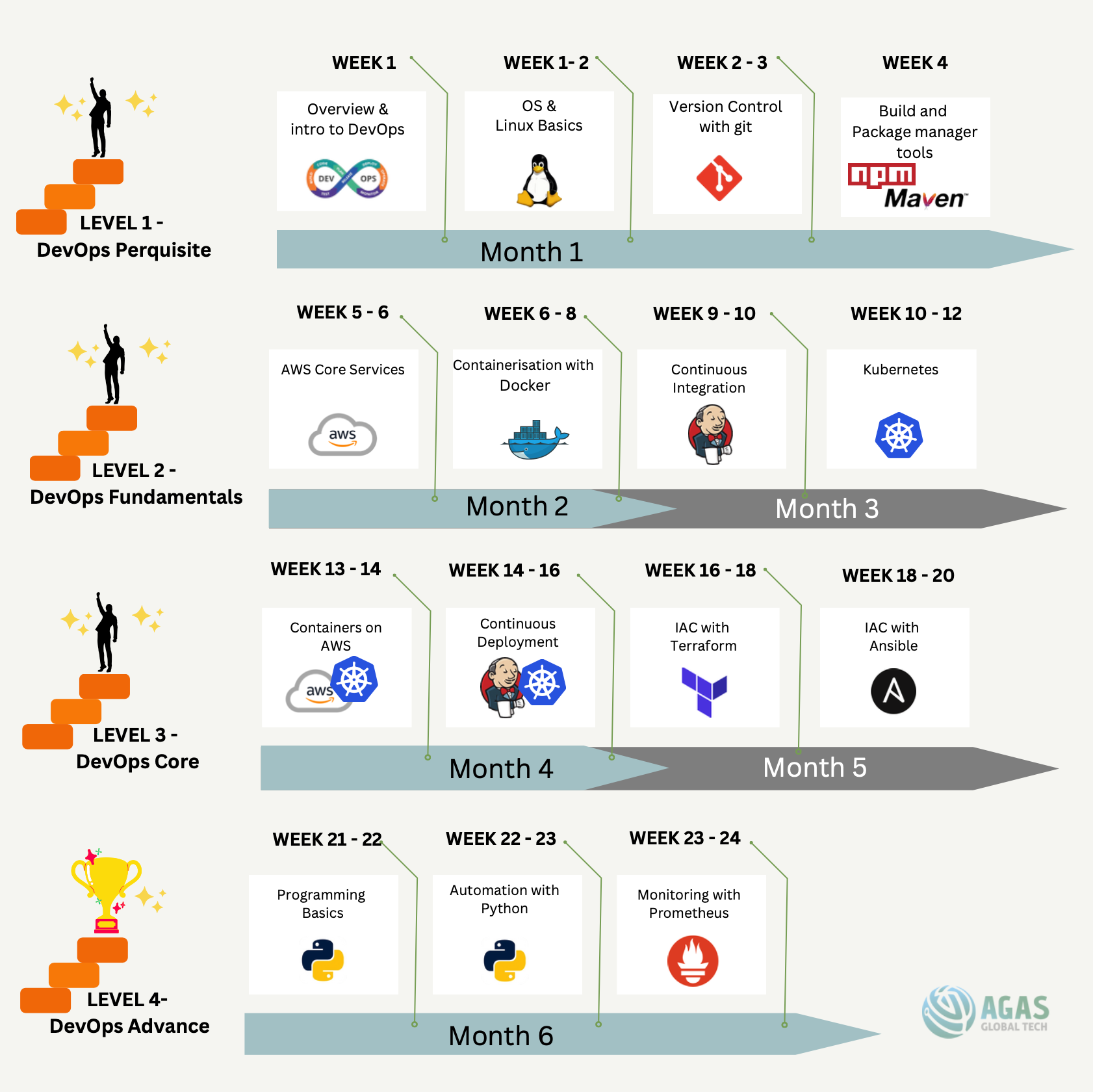
DevOps Course Curriculum
Overview of DevOps & Cloud Concepts, Technologies and Skills you learn
DevOps Pre-Requisite Concepts
Technologies you learn in these Modules
Linux, Git, Gradle, Maven, NPM, Nexus
Learning Objectives
OS & Linux Module:
As a DevOps engineer you are responsible for preparing the infrastructure (servers) on which the application is deployed. So fundamentals of Operating Systems, Linux and feeling comfortable using the CLI is crucial. In this module you'll learn everything you need for your DevOps or Cloud job.
Version Control Module:
DevOps is all about automation and you write all these automation logic as code. You manage this code and configuration files with a version control tool.
In this module you'll learn the most popular one: Git. Throughout the bootcamp you'll use Git to save your work in your Git repositories, so by the end you'll feel comfortable using it.
Build Tools Module:
You'll learn how to build and package an application with build and package management tools as well as how to execute tests. In this module you'll do it manually, to have the underlying understanding before you'll automate it in later Modules.
Artifact Repository Manager Module:
Artifact Repositories is an important element in the DevOps process. So in this module you will learn a popular artifact repository manager: Nexus. You will learn the general concepts, how it works and how to configure artifact repositories. Later you will learn how to integrate it in a complete CI/CD pipeline.
DevOps Technologies you learn
Jenkins, Jenkins shared library, integration with container registries, integration with various cloud platforms, integration with Kubernetes clusters, installing various tools
Learning Objectives
CI/CD with Jenkins Module and as part of various other Modules:
Continuous Integration and Continuous Deployment is the heart of DevOps. As CI/CD platform we will use Jenkins, which is heavily used at companies. But the CI/CD concepts you learn, are transferable to any other CI/CD tool.
Throughout the bootcamp, you'll learn how to build various production-grade CI/CD pipelines. Building release pipelines to automatically:
deploy application to AWS infrastructure
deploy container to AWS infrastructure with Docker Compose
deploy container to EKS cluster
DevOps Technologies you learn
Docker, Kubernetes, Docker Hub, Nexus, Docker registry, ECR, Helm Charts
Learning Objectives
Containers with Docker Module:
Containers are the new standard in modern systems and Docker is the most popular container technology. This means you need to generally understand concepts of virtualization and containers.
So in this module you'll learn everything to get a full picture of containers and how to work with containers using Docker.
Container Orchestration with Kubernetes Module:
Kubernetes (K8s) has become a standard runtime for modern applications in cloud. K8s is also a very complex framework, in the bootcamp you'll learn everything in an easy way and become proficient in it.
Kubernetes on Cloud - AWS EKS Module:
You'll learn advanced knowledge of EKS clusters and set up production-grade CI/CD pipeline deploying to EKS
DevOps Technologies you learn
AWS - IAM, ECR, EKS, VPC, EC2, S3
Learning Objectives
Companies are using virtual infrastructure on the cloud, instead of managing their own infrastructure.
Introduction to Cloud and Cloud Concepts Module:
In this module you'll learn about cloud concepts in general, how to set up a simple virtual server on a cloud and how to deploy an application. This gives you a first introduction to this topic.
AWS Services Module:
Learning AWS in-depth. AWS is the most powerful and widely used cloud platform, but also one of the most complex ones. So understanding the core services of AWS and how to build a proper infrastructure using various AWS services is an essential skill set of a DevOps or Cloud engineer that you learn here extensively.
DevOps Technologies you learn
Terraform, Python, Ansible
Learning Objectives
Infrastructure as Code with Terraform Module:
Manually creating and maintaining infrastructure is time consuming and error prone. In DevOps, we want to automate as much as possible and that's when Infrastructure as Code comes into the picture.
In this module you'll learn the most popular IaC tool: Terraform. First you'll learn Terraform concepts and syntax and how it works in-depth and afterwards use it for more advanced use cases like how to automate provisioning EKS cluster with Terraform and integrate Terraform in CI/CD pipeline to automate the whole process by combining all previously learnt concepts and tools.
Programming Basics with Python Module:
As a DevOps engineer you may need to write automation scripts or small applications to automate tasks for which you need more flexibility than specific IaC tools can provide it.
So in this module you'll learn programming basics with Python as one of the most popular and widely-used programming language. Knowing a programming language makes your skillset well-rounded and extensive, which will help you stand out among other DevOps engineers.
Automation with Python Module:
After having learnt the core programming concepts and syntax, you will now learn how to use this Python knowledge for DevOps use cases and write several automation scripts to get some hands-on real-life experience.
Configuration Management with Ansible Module:
As a continuation of the projects in all the previous modules, we will use Ansible to further automate and optimize DevOps processes.
Ansible, next to Terraform is one of the most popular infrastructure as code and configuration management tools currently used in IT projects. Knowing two IaC tools will make you even more valuable.
Throughout the module, you'll learn Ansible core concepts and syntax with hands-on demos. Essentially you will learn how to map and translate shell scripts and commands into Ansible Playbooks to automate various common tasks in general.
After that, you'll learn more advanced topics and integrations with other technologies. So as with all previous technologies, you don't learn Ansible just as a standalone tool in this bootcamp, but rather integrated in different technologies, like Docker, K8s, Terraform, Jenkins, AWS and so on, in various real world use cases, as it builds on the previous modules in the bootcamp!
DevOps Technologies you learn
Prometheus, Alert Manager, Grafana, Monitoring AWS infrastructure, K8s cluster, Third party services, own applications, K8s operators
Learning Objectives
Monitoring with Prometheus Module:
Once software is in production, it is important to monitor it to track the performance, discover problems in your infrastructure as well as application and the K8s environment. In this module you will learn a popular open-source monitoring tool: Prometheus along with the complete monitoring stack, using Alert Manager and Grafana
Subscribe now and receive weekly newsletter with educational materials, new courses, interesting posts, popular books and much more!
